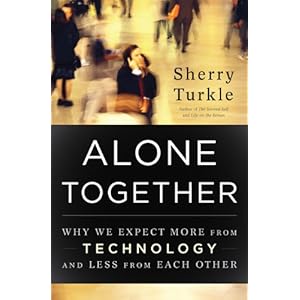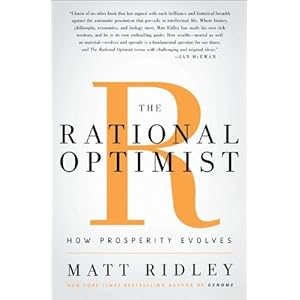Alone Together
I just finished reading Sherry Turkle’s “Alone Together”, and I want to jot down some thoughts while the book is still fresh in my memory. This is not a review, just random thoughts triggered by the book.

For me this book evenly rounded off a trio of books on technology. Matt Ridley’s “The Rational Optimist” is unabashedly optimistic, and makes a strong case for being so. It is an unapologetic celebration of the constant improving arc of technology as the engine for our quality of life, a strong rebuff to the nay-sayers and Luddites. Kevin Kelly’s “What Technology Wants” takes an unblinking look at both the good and bad that technology has wrought, and concludes that on balance, technology is good. In fact, it makes a strong moral argument for technology If, as a technologist, you ever have doubts about your line of work, read this book. It will not banish your doubts – if might actually reinforce them – but give you good reasons to stick with technology nonetheless.
And then, Turkle’s latest looks at technology from a human, personal and psychological point of view, and even though it is brilliantly written, there is a constant dark, gloomy tone to it.


- The book is evenly split into two parts. The first looks at robots, and how humans interact with them. Will we let robots raise our children and take care of our aging? Should we? If a robot makes eye contact, has warm skin, responds to what you say — and here’s the clincher – will never hurt you, will you prefer it to humans? Is a simulation of emotion as good as the real thing?
- The second half looks at the culture of connection. Being always on, always connected, unpredictably simulated by pellets of information. I was surprised that a serious discussion of addiction didn’t come until the last three chapters. For me, this part resonated much more than the first one, because, well, I live and struggle with the lures of the Net and how my brain interacts with it day in and day out, but I’ve never met a robot.
- The beating heart of the book is her subjects — the people she talks to and questions about their lives and their technology. Middle-aged people with families seeking shelter in the “cool shade of the Web” and teenagers overcooked by cellphones, longing for something else, something they don’t know. She quotes them directly and extensively.
- She brings technology’s problems into sharp relief, but unfortunately, offers no solutions. This, to me, was the book’s major fault.
- (This might be a spoiler.) The entire piece is revealed only when you finally realize that the author has a daughter who has just left for college. She worries if her daughter’s recollections of her, colored by ephemera such as email and Skype, will have the same richness and permanence as those that she has for her mother, formed when the world was analog, when handwritten letters could be dusted off after half a century and trigger a rush of emotion.